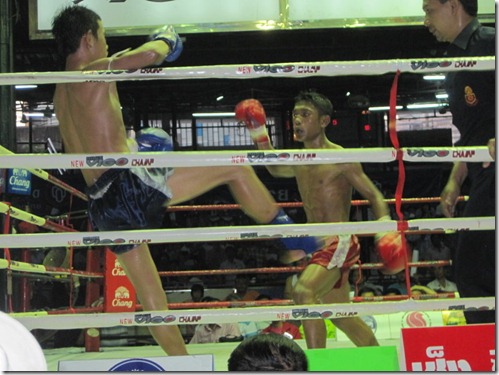Korea beat Japan 2-1 today in the inaugural 2006 World Baseball Classic to advance to the semifinals. Way to go! Not only did Korea’s victory secure the team a spot in the semis, but it also lifted Korean national pride as its national team beat Japan, its archrival and frequent nemesis, in a sport at which both nations excel. Most westerners cannot fathom how deeply the outcome of a game like today’s can affect the Korean psyche. To most westerners, baseball is just a game (except perhaps for Boston Red Sox fans). To many Koreans, today’s game was an opportunity to show the world that Korea is in elite company, finishing ahead of Japan. At work today, I noticed a significant lull in our workload as I waited for Koreans to finish watching the game. I don’t think that has happened since the 2002 World Cup. After the baseball game ended, I heard a thunderous applause erupting from our Korean visitors before they streamed in to talk to me.
To understand how just how deeply a competition such as this influences Asian sentiments, consider this. Ichiro Suzuki, the Japanese sensation who plays outfield for the Seattle Mariners and who happens to be one of my favorite baseball players, said before the WBC that "I want to beat South Korea so badly that the South Koreans won’t want to play Japan for another 30 years." The commentary, atypical of the normally collegial Ichiro, caused quite an uproar among Koreans. In another incident, Korean baseball players allegedly complained that their Japanese counterparts were staying in better accommodations in Phoenix. Stories such as these are common whenever national pride and bad blood spills onto the playing field.
Well, congratulations, Korea. You did well in the Winter Olympics, especially in short-track skating, and avoided controversy. Now you have advanced to the upper eschelon of baseball’s version of the World Cup. Alas, if you advance to the finals, you will face even more formidable opponents, Cuba and the Dominican Republic. I wish you luck. Both teams will be very tough to beat.
Blog Notes: Editfish, regarding my Spanish study–when I found out that I already had the required proficiency to bid on Spanish-language assignments, I decided to quit while I was ahead. I didn’t know whether I would move to China or to another country where Spanish is unnecessary. I also figured that if I had studied and tested in Spanish again from Seoul, my exam score could have actually decreased. I scored a 1 in speaking and 2 in reading, so anything less would have disqualified me from Spanish-speaking assignments. A score of 1/2, 2/1 or 1+/1+ is required to qualify for top-off. My worst nightmare would have been to score less than 1/2 in Spanish and disqualified myself.



